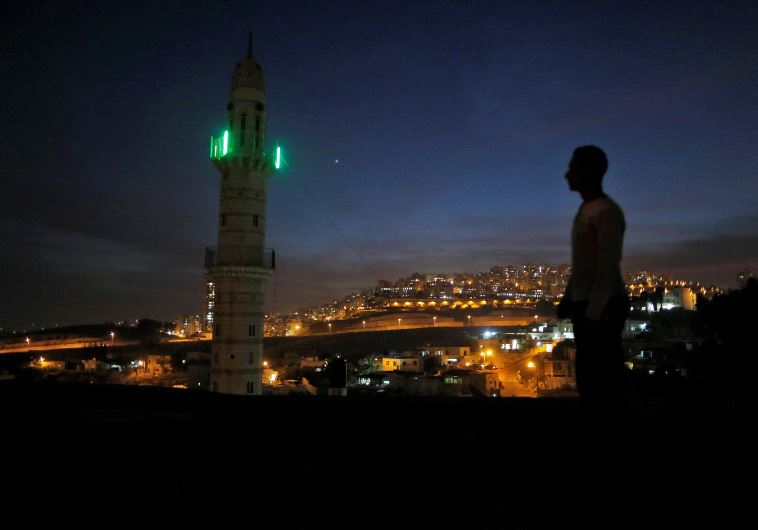Arab League terms muezzin bill a 'very dangerous provocation'
Dozens of people including Balad party MPs Haneen Zoabi and Basel Ghattas demonstrated against the bill on Wednesday night in Jaffa.
 A man stands near a mosque opposite to a neighborhood in east Jerusalem November 13, 2016.Updated:
A man stands near a mosque opposite to a neighborhood in east Jerusalem November 13, 2016.Updated: